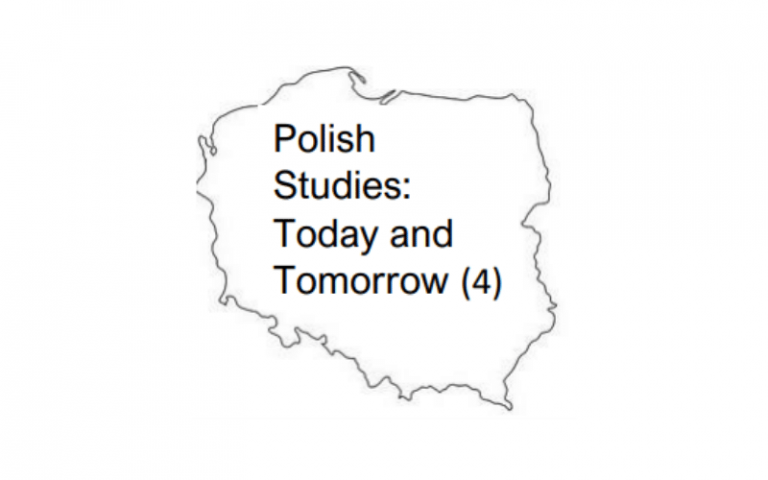Polish Studies Conference
08 September 2022–09 September 2022, 9:30 am–3:30 pm

Presented by the UCL SSEES Polish Studies Research Group and British Association for Slavonic and East European Studies Polish Studies Group
This event is free.
Event Information
Open to
- All
Availability
- Yes
Cost
- Free
Organiser
-
Prof Anne White
Like previous Polish studies events at SSEES, this event has a workshop format. Speakers will present work in progress. They look forward to receiving friendly and detailed feedback from colleagues united by a common interest in Poland, including Polish migration, but representing different academic disciplines and combinations of disciplines. The BASEES Polish Studies Group is an international group which ‘aims to enhance discussion on critical perspectives emerging in the field of Polish studies...The group seeks to foster research collaboration and enhance exchanges of ideas and expertise.’ Looking towards the future, one of our main aims is to support dialogue between researchers at different stages of their academic careers.
This year’s conference will be held online on Zoom. If you would like to register and receive a Zoom link, email Anne White, Professor of Polish Studies, SSEES, at anne.white@ucl.ac.uk by 5 September 2022. We welcome attendees who are not affiliated to any university; however, please let Anne know why you’d like to come to the event. The conference will not be recorded, since the papers present work in progress.
Abstracts
- Conference Programme
Thursday 8 September
9.30-9.40: Introduction
9.40-11.00: Unrest in partitioned Poland
Antoni Porayski-Pomsta, ‘Plebeian sociability and the state in the urban outskirts of Russian Poland (1880-1915)’
Natalia Gromakova, ‘Polish public activity in the 19th century: the Galician dimension’
11.10-1.10: Tatar and Polish identities
Kelsey Weber, ‘“I do it to show my culture”: dance, representation, and the body among Polish Tatars’
Josef Butler, ‘Polskość in Exile: Polish identity through the prism of the émigré milieu’
Michał Garapich, ‘Transnational populism and whiteness: what are we missing when talking about Polish immigrants’ post-Brexit uncertainties?’
2.00-3.20: Jews and Jewishness in communist-era Poland and beyond
Janek Gryta, ‘Between emigration and withdrawal: memory work as an example of Jewish agency in Gierek’s Poland’
Rachel Moss, ‘Skrzypek as synecdoche: Polish-Jewishness in Fiddler on the Roof’
3.40-5.00: Migration in Wielkopolska today
Izabella Main, ‘Medical experiences and access to healthcare of immigrants in Poznan and Wielkopolska Region’
Anne White, ‘Gender, class and strategy in Polish return migration to smaller cities: a case study of Kalisz and Piła’
Friday 9 September
9.00-11.00: World War II war crimes and international justice
Wojtek Rappak, ‘Jan Karski: the story and the history’
Michael Fleming, ‘Polish jurists and international justice during the Second World War’
Jenny Grant, '”The Least We Can Do”: Gunnersbury and the weaponisation of Katyn memorials in the late Cold War’
11.10-12.30: Language and literature in exile
Juliette Bretan, ‘”Words beyond the life of ships dream on”: Conrad, language and foreignness’
Ola Sidorkiewicz ‘Playing Chopin backwards: Stefan Themerson’s General Piesc as an unholy émigré’
1.30-3.30: Politics and law
Dominika Pszczółkowska, ‘Are they building a “second Ireland” in Poland? Political remitting by Polish migrants and return migrants from Ireland’
Aleks Szczerbiak, ‘Abandoning the “conservative anchor”? The Polish Civic Platform's changing attitude towards the religious-secular divide’
Agnieszka Kubal, ‘Queer Coalition? The crisis of justice in Poland and the LGBT rights before the Polish courts’
 Close
Close

